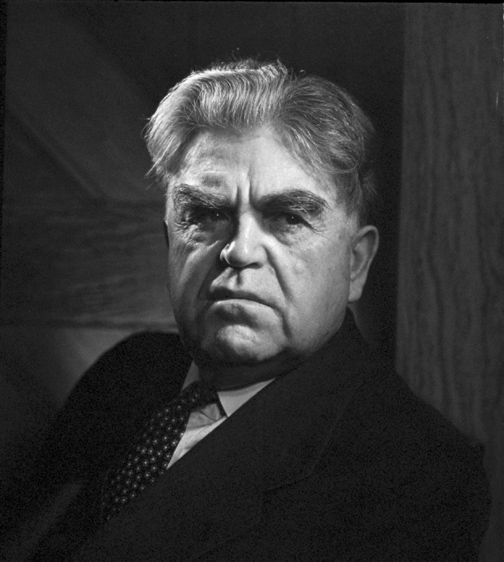 |
| John L. Lewis |
John L. Lewis, longtime president of the United Mine Workers of America (UMWA) and cofounder of the Congress of Industrial Organizations (CIO), was the United States' most powerful labor leader during the Great Depression. In 1933 he played a central role in the development of New Deal legislation that affected workers.
He successfully lobbied the administration of Franklin Roosevelt to include a provision, section 7a, in the National Industrial Recovery Act (NIRA) that guaranteed workers the right to organize their own unions and to undertake collective bargaining with their employers. Lewis used the NIRA as a springboard to organize more than 95 percent of the nation's bituminous miners.
As one of the founders of the CIO in 1935, Lewis sought to organize workers in a wide variety of occupations, ranging from longshoremen to actors. He focused particularly on mass-production workers in U.S. heavy industries.
  |
This defied the agenda of the American Federation of Labor (AFL), which traditionally organized only skilled craft workers. Lewis gained vital federal and state support for the militant auto workers in Michigan who undertook a daring sit-down strike against General Motors in 1937. As a result of the strike, the automobile industry was forced to recognize the legitimacy of the United Automobile Workers (UAW).
The same year Lewis negotiated employer recognition of the Steel Workers Organizing Committee (SWOC), in a steel industry that was notoriously hostile to union activity. By the end of 1937, approximately one of every four U.S. nonagricultural workers belonged to a union.
Lewis's influence waned during the late 1930s, when he was an ardent isolationist. He correctly foresaw that if the United States became involved in World War II, the Roosevelt administration would neglect its progressive domestic agenda in favor of building consensus support for the war effort.
Lewis considered this to be a betrayal of the New Deal, and he shocked many of his cohorts when he endorsed Republican presidential candidate Wendell Willkie in 1940. In 1942 he withdrew the UMWA from the CIO because he felt that CIO leaders had lost their autonomy by supporting the administration. As a result, Lewis and the UMWA became isolated from much of the labor movement.
Throughout the 1940s, he led a series of widely unpopular strikes, cementing his reputation as an adversary of federal power. Much hated by Harry S. Truman, in 1946 he defied a federal injunction to end a nationwide coal strike, for which he received enormous fines.
Historians find significant contradictions in Lewis's career. After successfully collaborating with the Roosevelt administration to win unprecedented legitimacy for unions, he became a vehement critic of government-labor alliances. Although he helped to empower millions of workers, he ran the UMWA with autocratic authority.